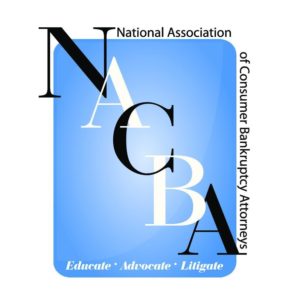Credit Counseling Requirement
If you are considering filing for bankruptcy in Texas, you should know a few things beforehand. It is required that you attend one of the credit counseling, budget analysis briefing with an approved non-profit entity. This credit counseling usually costs on average around $50.
When it is time to take your information I will provide you with a workbook which contains the following documents: File Petition, Schedules A-J, Statement of Financial Affairs, Means Test Analysis, and Statement of Intent. You will fill out the information per each document in the workbook and once you have completed it, the information you provided will be fed into our software program. We will take this opportunity to go over your information with you for accuracy.
Making mistakes in the documents can result in the denial of the discharge. The documents have the same legal effect as giving testimony in court under oath. Hence, we want to make sure that no errors are present in the documents so as to avoid claims of fraud.
Once the documents are electronically filed with the Court in Texas, you will be assigned a case number and this event causes you to have an active case. Immediately upon filing your case, a legal injunction goes into effect prohibiting your creditors, landlords, spouses, and government entities from taking any further action to collect or recover any debt you owe or go forward on any civil litigation without getting the approval of the bankruptcy court. For example, a paycheck garnishment or foreclosure is halted and a repossession item may be returned to you. This injunction is called the “automatic stay”.
After you file for bankruptcy, and after you have completed the initial credit counseling, you will have to attend another class entitled "Debtor Financial Education". Our firm contracts with Hummingbird credit counseling services to complete this class. You can do it at our office or at your residence. Failure to complete the class will result in the case being closed without receiving a discharge.
Within 45 days of filing the case, you will attend a meeting of the creditors and your trustee. This is sometimes referred to as the section "341(a) Meeting". The Trustee is an independent person appointed automatically in all Chapter 7 bankruptcy cases by the United States Trustee’s Office and will review your documents and confirm that the information you have provided is true. An attorney from our firm will be there with you and explain to you what you can expect out of this meeting.
The trustee assigned to you acts as a fiduciary for your unsecured creditors, and can either object to your discharge, if they believe you have too much income to file for Chapter 7 Bankruptcy or if they believe you have committed fraud. In Texas, most assets are exempt and that means you can keep the property. A review of your possessions will be done at the meeting to protect your belongings.
Any property you claim as exempt can be objected to by your trustee and your creditor for up to 30 days after the meeting of creditors. After the 30 days have passed you will be allowed your exemptions.
Your creditors have 60 days after the date first set for your meeting with the Trustee to file a complaint objecting to the discharge of their debt, or to your entire discharge under Chapter 7 Bankruptcy. Grounds for doing this include the following: fraud, false statements on a credit application, and willful or malicious injury to a person or property of a person.
Under the rare case that an objection is filed, there will be a court case following where you will have to decide if you wish to defend the action, settle it, or just let it go to default judgment. While I encourage you to make your case before the judge, an attorney must mitigate any potential damages. If I feel the creditor is going to win, I will encourage you to settle out of court. If the creditor has no case, then a trial would be in order with an attorney fee request from the creditor for filing a “frivolous suit”.
So long as no one objected your discharge, you will receive a Notice of Discharge in the mail about 2 months after your “341(a) Meeting” of creditors took place. This will confirm that all your dischargeable debts have been discharged, certain debts cannot be discharged such as child support, alimony, certain taxes, student loans etc.
If a creditor was not included, you may need to reopen your case, add the missing creditor and separately discharge that creditor. Our firms only file cases in Texas which are a part of the 5th circuit. In the 5th Circuit, if there are no assets to administer, the debt is discharged even if not scheduled. However, should you need to reopen; additional fees and costs may apply. So it is important that all creditors are properly noted at the beginning of your case. The legal effect of the discharge prevents any creditor from petitioning a court for requesting a judgment to be entered against you for the debt.
At this point, your credit report should show that you were discharged of your debt and you should have a balance of ZERO, with the phrase, "Included in Bankruptcy" next to it. If it does not show this then you will have to follow these few steps to update your credit score.
1. Log into the credit bureau's website and then go to "DISPUTE".
2. Click on the Creditor you are disputing.
3. Check the box that goes with the reason, "Was included in my bankruptcy filing."
Please allow approx. 45 days before your credit score is updated with this information.
It will be very important to re-establish your credit in the next 2-3 years following. Living on a budget and paying cash will help you stay safe. But often it is not a bad idea to have a couple more recent items on your credit after a bankruptcy filing.
Those items might be a small loan or applying for a new credit card. Just be aware that your credit score after filing for bankruptcy will increase the credit rates you have to pay on new credit. So be smart and choose only the most affordable plans.
Most importantly, once you establish new credit, you must pay ON TIME. If you increase your income, re-establish your credit, and pay on time, then you should find that after four or five years your credit score will improve appreciably and the bankruptcy will not affect you as much anymore.
After the fifth year, most lenders will only want to know what have you done since the bankruptcy and how able will you be to pay for your new credit.

Practice Limited to Federal Bankruptcy Law **Admitted to Southern District of Texas, licensed in the State of Indiana only
715 E. Whitney St. Houston, TX 77022
Phone: (713) 974-8099
Email: esouthward@busby-lee.com



